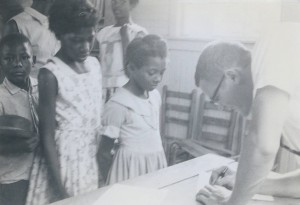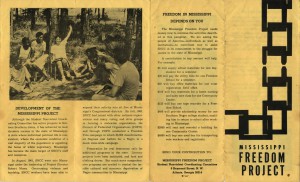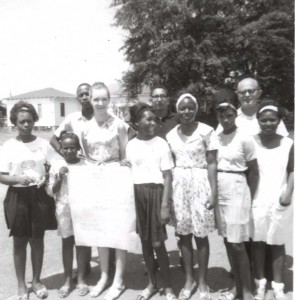 Our fall exhibit featuring materials from the Western College Memorial Archives’ Freedom Summer collections is now open and will run through December 12th. Stories of Freedom Summer highlights the experiences of three Mississippi Summer Project volunteers, Carole Gross Colca, Roland Duerksen, and Mark Levy, during this pivotal moment in civil rights history. All three have donated materials documenting their participation in the Freedom Summer project to the Western College Memorial Archives. There will be an exhibit reception on Friday, October 10th. The reception will feature a panel discussion by Colca, Duerksen, and Levy about their time in Mississippi and their participation in the civil rights movement. Save the date!
Our fall exhibit featuring materials from the Western College Memorial Archives’ Freedom Summer collections is now open and will run through December 12th. Stories of Freedom Summer highlights the experiences of three Mississippi Summer Project volunteers, Carole Gross Colca, Roland Duerksen, and Mark Levy, during this pivotal moment in civil rights history. All three have donated materials documenting their participation in the Freedom Summer project to the Western College Memorial Archives. There will be an exhibit reception on Friday, October 10th. The reception will feature a panel discussion by Colca, Duerksen, and Levy about their time in Mississippi and their participation in the civil rights movement. Save the date!
When the administration of the Western College for Women, now a part of Miami University, opened its campus to civil rights activists in 1964, an estimated 700 young and idealistic college students from across the north arrived in Oxford, Ohio for voter registration training. Sponsored by a coalition including the Congress of Racial Equality (CORE), the National Association for the Advancement of Colored People (NAACP), Student Nonviolent Coordinating Committee (SNCC), and the Southern Christian Leadership Conference (SCLC), and the National Council of Churches, this event is considered by scholars to be one of the pivotal events in civil rights history; one that would eventually reshape the electoral landscape of the United States.
Today, the story of Freedom Summer has the power to evoke important questions about American identity, public life, engagement, and commitment. Freedom Summer was an experiment in “deliberative democracy,” which can be used to model democratic processes, social change, community service, political process, civic engagement, and ethical decision making. History is often written from the national perspective, but it is important to acknowledge how local histories shape national movements. In fact, members of the Oxford community established the Friends of the Mississippi Summer Project. In addition to holding several fundraisers to support the movement, they also raised money to help support individual students while they were in Mississippi.
 In addition to the photographs, letters, and memorabilia, the exhibit includes audiovisual and interactive media. While in the exhibit room, visitors will be able to hear the voices of Freedom Summer’s volunteers and supporters. Taken from the Freedom Summer Digital Archive, samples of participants’ oral histories play in the background of the exhibit and a screen displays information about each speaker. On one wall of the room stands an interactive map of Mississippi, with significant sites of Freedom Summer highlighted. When touched, each site displays an image, a quote, or an article about events in that city. Like the oral histories, all the items in the interactive map can be found in the Freedom Summer Digital Archive.
In addition to the photographs, letters, and memorabilia, the exhibit includes audiovisual and interactive media. While in the exhibit room, visitors will be able to hear the voices of Freedom Summer’s volunteers and supporters. Taken from the Freedom Summer Digital Archive, samples of participants’ oral histories play in the background of the exhibit and a screen displays information about each speaker. On one wall of the room stands an interactive map of Mississippi, with significant sites of Freedom Summer highlighted. When touched, each site displays an image, a quote, or an article about events in that city. Like the oral histories, all the items in the interactive map can be found in the Freedom Summer Digital Archive.
The Walter Havighurst Special Collections exhibit room is open Monday through Friday, 8-5. Please stop in and discover more about this important moment in our nation’s history.
Kimberly Tully
On behalf of my fellow exhibit curators Jacky Johnson, Interim University Archivist & Marcus Ladd, Special Collections Digital Librarian
